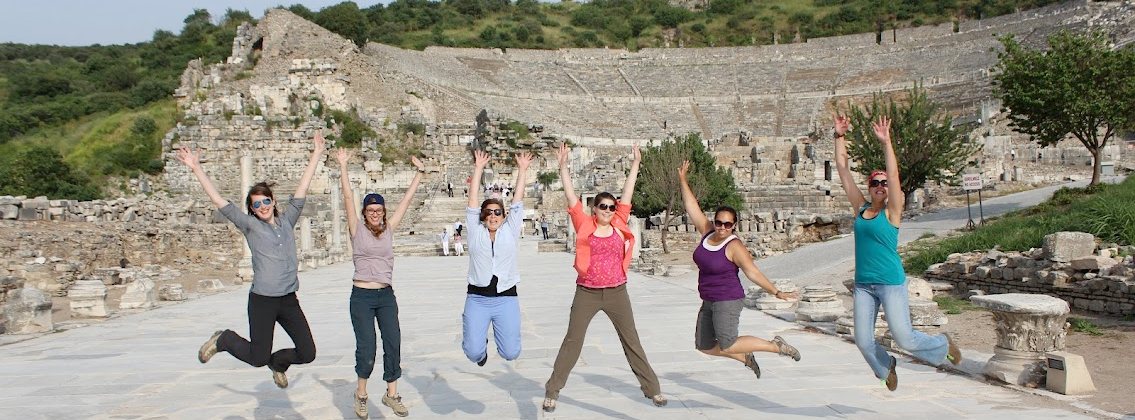The American School of Classical Studies at Athens was founded in 1881 to provide American graduate students and scholars a base for their studies in the history and civilization of the Greek world. Today it is still a teaching institution, providing graduate students a unique opportunity to study firsthand the sites and monuments of Greece. The Summer Session and Summer Seminars allow students, scholars, and teachers to experience Greece first-hand with on-site learning.
Scholarships Available for All Programs (for Graduate Students and Teachers)

2022 Summer Seminars
Eighteen-day sessions designed for those who wish to study specific topics in Greece and visit major monuments with exceptional scholars as study leaders, and to improve their understanding of the country’s landscape, history, literature, and culture. Choose one, or both(!), seminars – seminar topics change every summer.
Aegean Networks of Technology (June 6-24, 2022)
This seminar will explore four fundamental technologies in ancient Greece (ceramics, wood-working, stone carving, and bronze-casting) and how craft practitioners shared their expertise in multi-craft projects, such as building a boat or a temple. Participants will discover how these networks of technology developed in a broad Aegean context, from Athens and Corinth on the mainland to the Cycladic islands of Naxos, Paros, and Santorini, and in a deep time frame, from prehistory to contemporary traditional practices. Taught by Professor Eleni Hasaki, University of Arizona.
The Northern Aegean: Macedon and Thrace (June 30 – July 18, 2022)
In this seminar, participants will explore the Northern Aegean region during various time periods. The history of Macedon and Thrace bridges the East and West and offers a glimpse into some of the most significant developments in Greek history, such as colonization, cross-cultural relations, the Persian Wars, Athenian hegemony, and the rise of Macedon. Taught by Professors Amalia Avramidou, Democritus University of Thrace, and Denise Demetriou, University of California, San Diego.
2022 Summer Session
Six-week intensive introduction to Greece from antiquity through the modern period. The program provides the most extensive exposure to Greece, ancient and modern, for participants with interests in Classics and related fields. A strong academic component with participants researching and presenting topics on site. Offers unique opportunities to interact with eminent archaeologists in the field.
For 2022, the Summer Session (June 13-July 27, 2022) will be directed by Professor J. Matthew Harrington, Tufts University. Roughly half of the session is spent in travel throughout Greece. Three trips give participants an introduction to the major archaeological sites and museum collections throughout the country. The extended trips vary from session to session, but traditionally include six days on Crete, ten days in the Peloponnese, and a week in Northern Greece. Roughly, 60 sites and museums are visited. The remainder of the session is devoted to study of the museums and monuments of Athens and the surrounding area with day trips. While in Athens, members visit and study the city’s important monuments and sites.
Every participant gives two on-site oral reports of about twenty minutes each. Report topics are selected in consultation with the director, taking into account participants’ interests and skills.
Learn More about the Summer Session
Questions? Contact: application@ascsa.org







